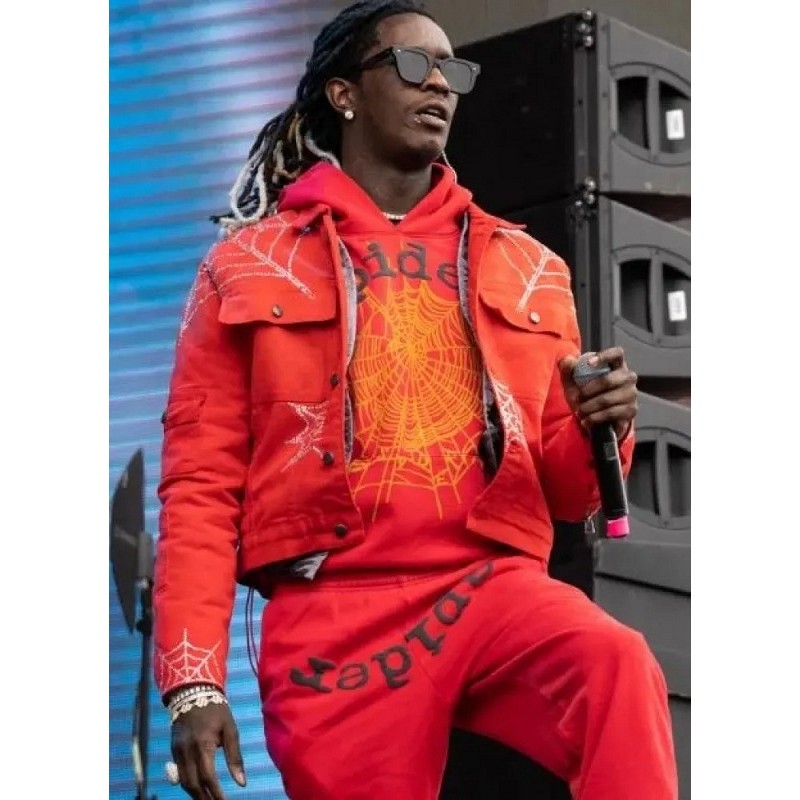


In an era where sustainability and corporate responsibility are at the forefront of consumer awareness, the fashion industry is undergoing a profound transformation. Visit now https://spiderofficial.us/ Ethical practices in fashion are no longer a niche concern but a mainstream expectation. This article delves into the significance of ethical practices in fashion, exploring their impact on the environment, labor rights, and consumer choices.
The fashion industry is one of the most polluting sectors globally, but the shift towards sustainable materials is helping to mitigate this impact. Organic cotton, recycled polyester, and bamboo fibers are just a few examples of materials that are gaining popularity due to their reduced environmental footprint. Using sustainable materials not only conserves resources but also minimizes chemical use and waste production.
Beyond materials, the methods used in production play a crucial role in sustainability. Eco-friendly production processes include water-saving techniques, renewable energy sources, and non-toxic dyes. These methods help reduce pollution and conserve natural resources. For instance, waterless dyeing technology can save billions of liters of water annually.
Waste reduction is another vital aspect of ethical fashion. The industry has traditionally operated on a linear model of “take, make, dispose.” However, the circular economy model promotes reusing, recycling, and repurposing materials. Brands are now designing products with their end-of-life in mind, encouraging consumers to return worn items for recycling or resale.
Ethical fashion also encompasses fair labor practices. Ensuring safe working conditions is paramount. The tragic collapse of the Rana Plaza factory in 2013 highlighted the dire need for improved safety standards in garment factories. Ethical brands invest in safe, clean, and healthy working environments for their employees.
Paying fair wages and respecting workers’ rights are fundamental components of ethical fashion. Fair Trade certifications and labor union partnerships help ensure that workers receive fair compensation and their rights are protected. Brands like Patagonia and Everlane are leading the way by being transparent about their supply chains and labor practices.
Child labor remains a significant issue in many developing countries where fashion items are produced. Ethical brands are committed to eradicating child labor by implementing strict supplier codes of conduct and regularly auditing their supply chains. Organizations like the International Labour Organization (ILO) provide guidelines and support to help brands adhere to ethical labor standards.
Modern consumers demand transparency and accountability from the brands they support. Ethical fashion brands are responding by providing detailed information about their sourcing, Check it now Sp5der hoodie production processes, and labor practices. This transparency builds trust and allows consumers to make informed choices aligned with their values.
Conscious consumerism is a growing trend where consumers prioritize ethical and sustainable products. This shift is driving brands to adopt more ethical practices. Consumers are increasingly willing to pay a premium for products that are environmentally friendly and socially responsible, reflecting a shift in values towards sustainability and ethical consumption.
Education plays a crucial role in promoting ethical fashion. Brands and advocacy groups are investing in educational campaigns to inform consumers about the importance of ethical practices. These campaigns highlight the environmental and social impacts of fast fashion and encourage consumers to choose ethically made products.
Patagonia is renowned for its commitment to environmental sustainability and social responsibility. The brand uses recycled materials, invests in renewable energy, and promotes fair labor practices throughout its supply chain. Patagonia also encourages consumers to repair and reuse their products, reducing waste and extending the life of their garments.
Stella McCartney is a pioneer in luxury sustainable fashion. The brand is known for its use of innovative, sustainable materials like vegetarian leather and organic cotton. Stella McCartney’s commitment to ethical practices extends to animal welfare, with a strict no-fur and no-leather policy.
Eileen Fisher is another brand leading the way in ethical fashion. The company focuses on sustainable materials, fair labor practices, and waste reduction. Eileen Fisher’s Vision2020 initiative aims to create a circular design system where all products are designed to be reused or recycled.
The future of ethical fashion is bright, with continuous innovations in sustainable materials. Lab-grown leather, biodegradable fabrics, and carbon-neutral fibers are just a few examples of the advancements being made. These innovations promise to further reduce the environmental impact of fashion.
Governments and international organizations are beginning to implement stricter regulations and standards for the fashion industry. These measures aim to ensure that brands adhere to ethical practices and provide consumers with accurate information about the sustainability of their products.
The power of consumer demand cannot be underestimated. As more consumers prioritize ethical fashion, brands will be compelled to adopt sustainable and fair practices. This shift will continue to drive the industry towards greater transparency, accountability, and sustainability.
The importance of ethical practices in fashion cannot be overstated. From reducing environmental impact to ensuring fair labor practices, ethical fashion addresses some of the most pressing issues in the industry. As consumers become more conscious of their choices, the demand for ethical fashion will continue to grow, driving positive change throughout the sector. By supporting brands that prioritize sustainability and social responsibility, consumers can contribute to a more ethical and sustainable future for fashion.